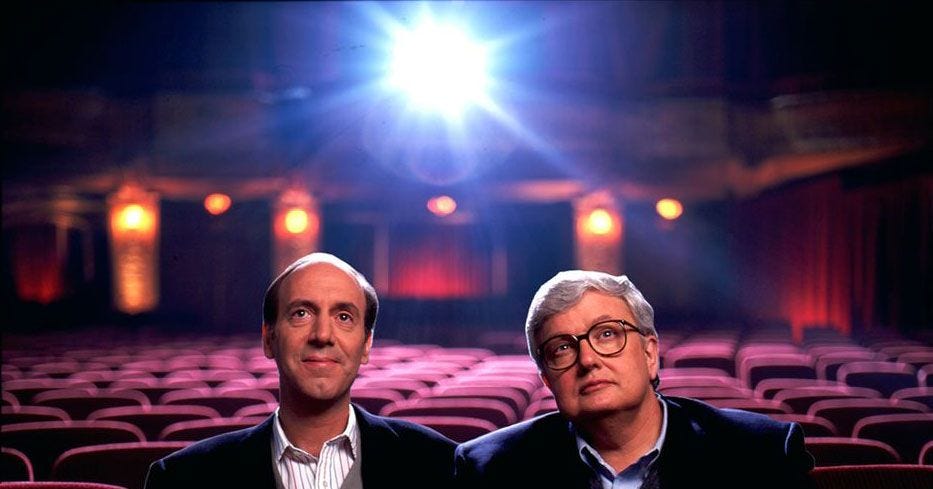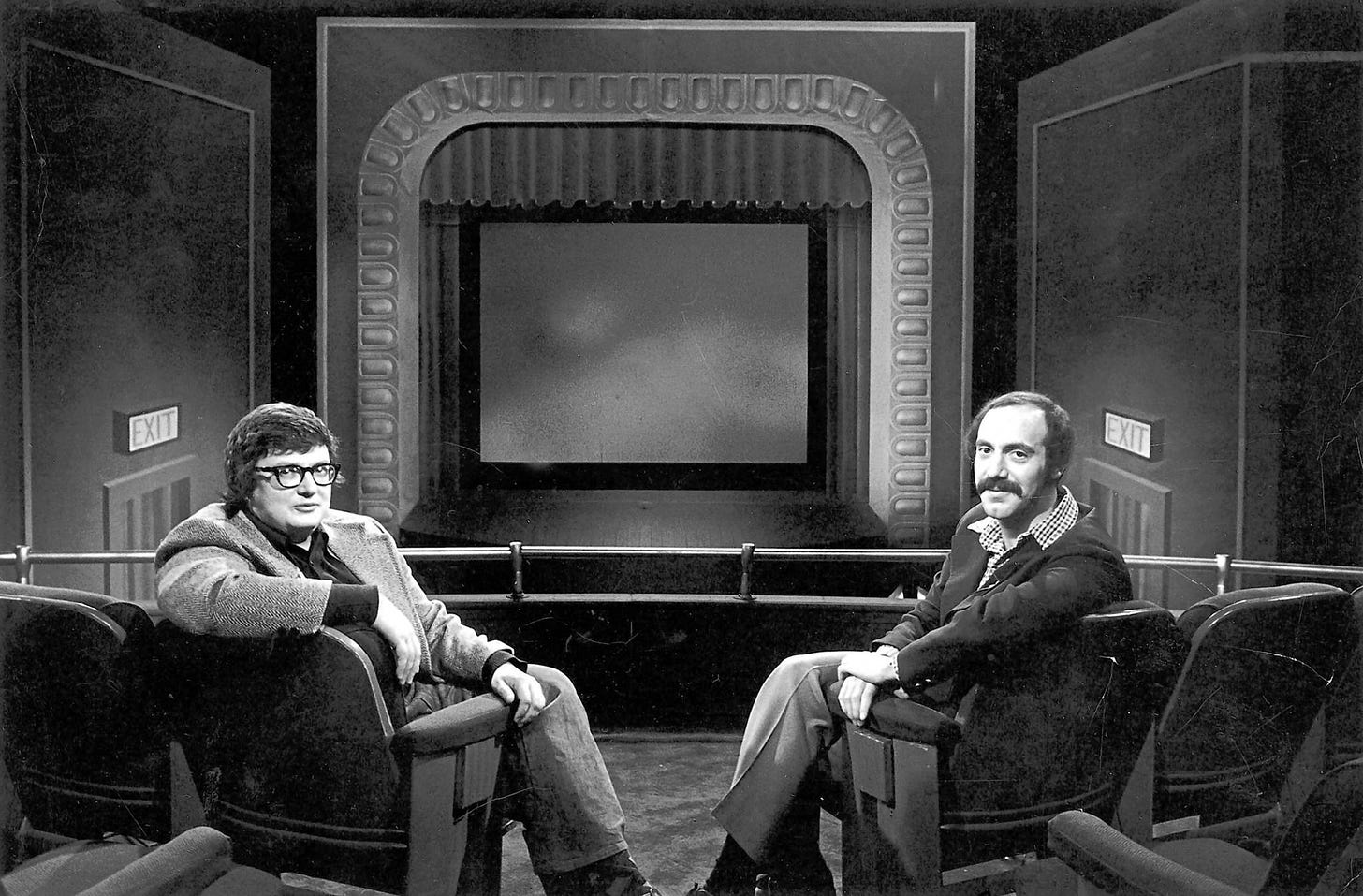"Opposable Thumbs: How Siskel & Ebert Changed Movies Forever," by Matt Singer
Any dream will do
Finished Matt Singer's "Opposable Thumbs: How Siskel & Ebert Changed Movies Forever.” Theoretically, Singer's writing the history of a TV show. But the book's a love story, on many levels: between films and audiences, art and capital, fans and critics, past and present, and finally (and most importantly) between a pair of men. They were two Midwestern newspaper rivals who were already complete and contentious critics before they ever met ... who then fell backwards into chemistry and greatness because they knew how to fight.
What exactly were Roger and Gene doing in that balcony? Written criticism is authoritarian: a single opinion carved in black iron. It creates an illusion of objective taste. But artistic truth is more like a ship at sea, rising and falling with tides. Critical debate shows a truer picture of taste. It says: look, moviewatching is a personalized experience.
And Siskel & Ebert's success is proof of how subjective entertainment is. This book is about the baffling mystery of any successful partnership or marriage: how do two people create one superior whole? Why is Lennon-McCartney better than John or Paul alone?
They were the best, but being the best is not enough to make people miss you. I respected Tiger Woods, never liked him. But we love this pair of cantankerous, ordinary-looking men who squabbled over everything.
Perhaps it's about what Gene and Roger didn't do. Never broke up. Never sold out. Never backed down on a bad movie. And the big one: they never lied. To watch them talk is to see game recognizing game. As Herzog wrote about Kinski: "We had mutual respect for each other, even as we both planned each other's murder."
I've been a published critic since I was 15. Written a lot of reviews: on cities, books, movies, you name it. These guys were the alpha and omega of criticism for me. From them, I learned how to weigh the scale. It's been twenty years since Siskel died, but no matter: these two men will always occupy a large part of my critical consciousness: in the waking dream of movies, and in the little darkness that holds a greater light.





